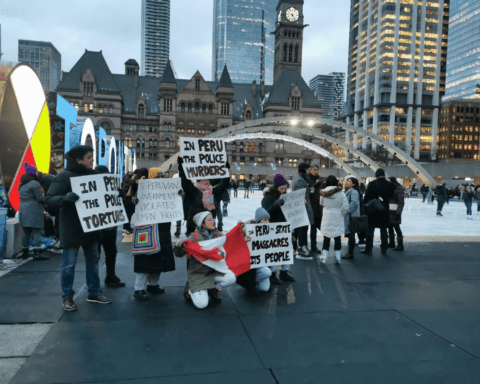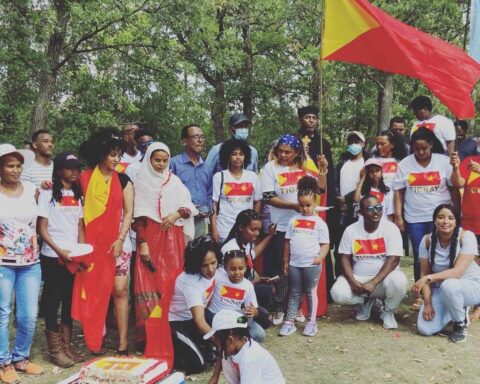It is increasingly clear that millennials, those born since 1980, are fast re-defining the philanthropy landscape. And when it comes to diaspora millennials, this means countries around the world could potentially benefit.
Millennials expanding meaning of philanthropy
Derrick Feldman, in his research into The Millennium Impact, found that millennials are expanding the traditional definition of philanthropy (time, talent and treasure), to also provide voice and network for the causes they adopt. In the context of such holistic agency, philanthropy has become an essential part of how millennials connect to create value for their causes and for themselves in the process.
Additionally, studies show that many adults, between the ages of 20 to 35, often seek employment opportunities at organisations with strong corporate social responsibility (CSR) mandates that support causes from the global to the local, from Fair Trade to the neighbourhood food bank.
As workforces become more diverse and inclusive to better serve customers in the globalised economy, it creates opportunities, albeit slowly, for members of marginalised communities to climb the corporate ladder. These new leaders have expanded CSR mandates to advocate for systemic issues impacting their communities that were previously not as visible in the workplace, such as issues affecting women, immigrants and persons of colour, and the LGBT community to name a few.
The globalised world, made smaller by social media, has also brought home the problems of the world thereby contributing to further understanding of the impact and inter-connectedness of world issues to local issues, and adding new dimensions to why, what and how millennials engage in philanthropy.
Global + Local = Glocal
This new “glocalised” reality of philanthropy is nowhere more apparent than in a country like Canada.
As workforces become more diverse and inclusive to better serve customers in the globalised economy, it creates opportunities, albeit slowly, for members of marginalised communities to climb the corporate ladder.
In 2014, the Toronto-based public policy think tank, the Mowat Centre announced that “Canada is now a diaspora nation”. Canada is home to the largest percentage of immigrants in its population amongst the member countries of the Organization for Economic Cooperation and Development, and attracts an increasing number of immigrants from Asia and Latin America every year.
In its report, the Mowat Centre highlighted the great potential for these communities to act as diaspora networks that can be effectively mobilized to bring significant economic and social benefits to their adopted countries. This is possible because diaspora networks have substantial linkages to economies and communities beyond the borders of their adopted countries, help not only circulate information but also make it ‘stick’, and provide cultural knowledge and insight. There is also great potential to harness such networks for economic development but to also advance philanthropy interests whether for local causes or international development. The International diaspora Engagement Alliance and Diasporas for Development Initiative are both examples of how various diasporas in the United States are engaged in development and diplomacy.
Canada’s Sri Lankan diaspora
In Canada, the Sri Lankan diaspora is an interesting example of how diaspora networks are leveraged to pursue philanthropy interests in home and adopted countries, and how millennials are leading such efforts.
The Sri Lankan Canadian diaspora is made up of several ethnic groups, the majority of whom are Tamils who left Sri Lanka since the early 1980s as a result of the civil war between the ethnic Sinhala majoritarian state and ethnic minority Tamil separatist forces. While there is a steady increase in immigration of other ethnic groups from Sri Lanka to Canada, diaspora representation and impact in Canada continues to be primarily shaped by Tamils. Over the past decade, the diaspora has become increasingly integrated into Canada’s political, economic and social ecosystems. In doing so, it has adopted mainstream philanthropy causes such as health and the environment while also addressing issues reflective of their recent immigrant experience such as racism, poverty, asylum and refugee hood, and other socio-cultural inequities.
While the diaspora has engaged in political activism around Sri Lanka’s ethnic problem since the late 1970s, its engagement took on a popular philanthropic bent focused on sustainable development and humanitarian aid only since 2002 and especially as a result of the 2004 Indian Ocean tsunami. Though much of the latter engagement receded to the background as the civil war escalated and political and human rights advocacy took centre stage in the diaspora, there is now growing momentum to continue and expand the philanthropy agenda, particularly in aid of war-impacted communities who continue to face a whole host of issues since the end of the war in 2009.
Examples of glocal efforts
There are a few diaspora organisations trying to address some of the issues facing these war-impacted communities in Sri Lanka. These include organisations that focus on one key sector, for example health in the case of the International Medical Health Organisation – Canada and the Canadian Tamil Medical Association; groups such as the Charity Ball for Hope and Kalvi Connections who host social fundraisers for grassroots efforts in Sri Lanka; organisations that have historical connections their communities in Sri Lanka, including village alliances such as the Vanni Tamil Sangam of Canada, religious groups such as the Canada – Sri Lanka Life Development Centre, and alumni associations such as the SJC87 Initiative; and organisations such as Visions Global Empowerment and Educate Lanka Foundation that are based in the United States but sometimes reach into Canada to tap into a larger North American pool of volunteers and funders.
This new “glocalised” reality of philanthropy is nowhere more apparent than in a country like Canada.
Additionally, the Toronto-based comdu.it network (and with which we are involved in) is another interesting example of how the diaspora is also exploring other ways of engaging its various communities to support more effective involvement in philanthropy work overseas. Established in 2014 as a pilot and managed by a diverse team of students and young professionals from different ethnic communities in the Sri Lankan Canadian diaspora, this network is interested in: facilitating the return of subject matter experts to Sri Lanka to strengthen the capacity of grassroots organisations while gaining deeper insight into local issues recognizing that the Global North is not the only site of production and dissemination of knowledge; providing a channel for individuals to make targeted micro-gifts as investments in education for children and economic empowerment of women, particularly female-headed households; and becoming an open and collaborative platform that can be leveraged by the various ethnic communities in the diaspora in order improve the overall quality and effectiveness of their philanthropy efforts in Sri Lanka.
Diaspora millennials leverage social, educational, and professional networks
Most of these diaspora efforts, whether it is political advocacy, local philanthropy or international development as described above, are primarily led by 1.5- and second-generation millennials (and Generation-Xers) who are thinking and doing glocally. Such involvement in international development, though, is not without its challenges that reflect certain geopolitical realities and fundamental political issues in Sri Lanka that must be concurrently addressed. However, it is clear that with the growing return of millennials to Sri Lanka, they are increasingly interested in leveraging their social, educational and professional networks, which often cut across ethnic barriers, to collectively give their time, talent, treasure, voice and network to push forward their philanthropy causes at home in Canada and abroad in Sri Lanka. Indeed, the NATO Council of Canada recently used the Sri Lankan diaspora as an example to highlight the rich potential of Canadian diaspora communities to facilitate post-war development and peacebuilding around the world.
In the new philanthropy landscape, therefore, millennials are building on the lessons of their predecessors, leveraging the latest in social and digital media, and optimizing traditional, offline networks to find new ways of adding value to their causes and social enterprises. Thanks to millennials, it has never been a more creative and exciting time to give back.
Anupama Ranawana holds a Ph.D. in Politics and International Relations and is training to become a theologian. Kumaran Nadesan holds a B.A. (Hons.) in English Literature and Psychology and is a civil servant in the Government of Ontario. They are part of the executive team of comdu.it.




